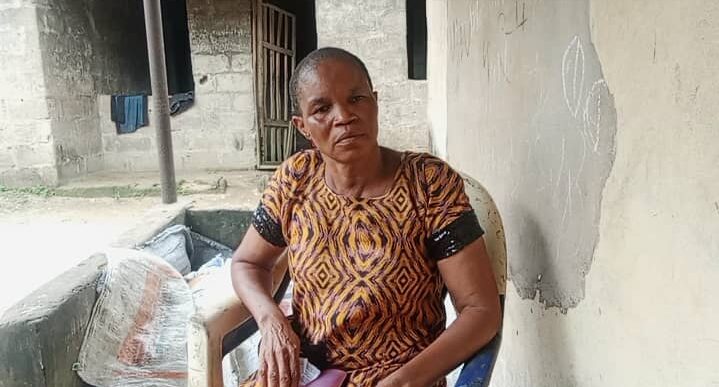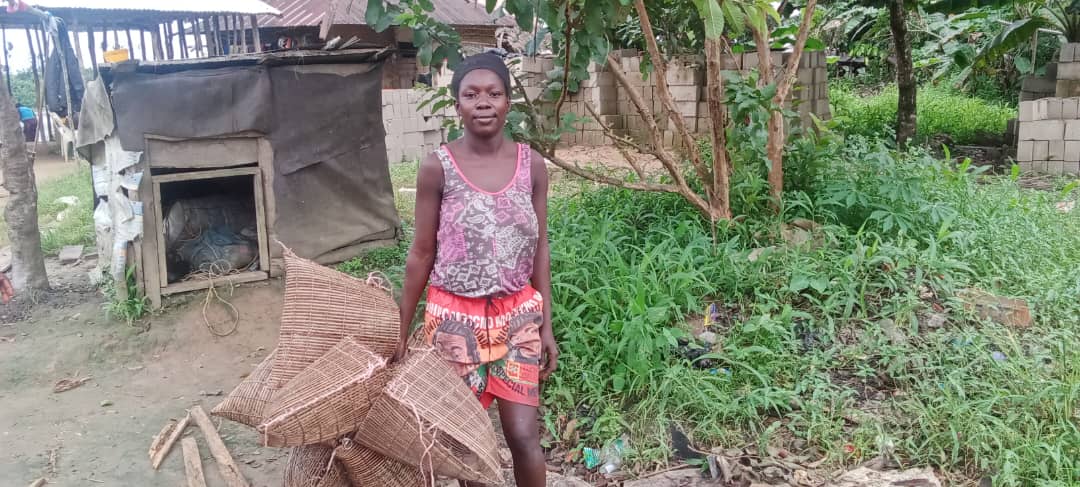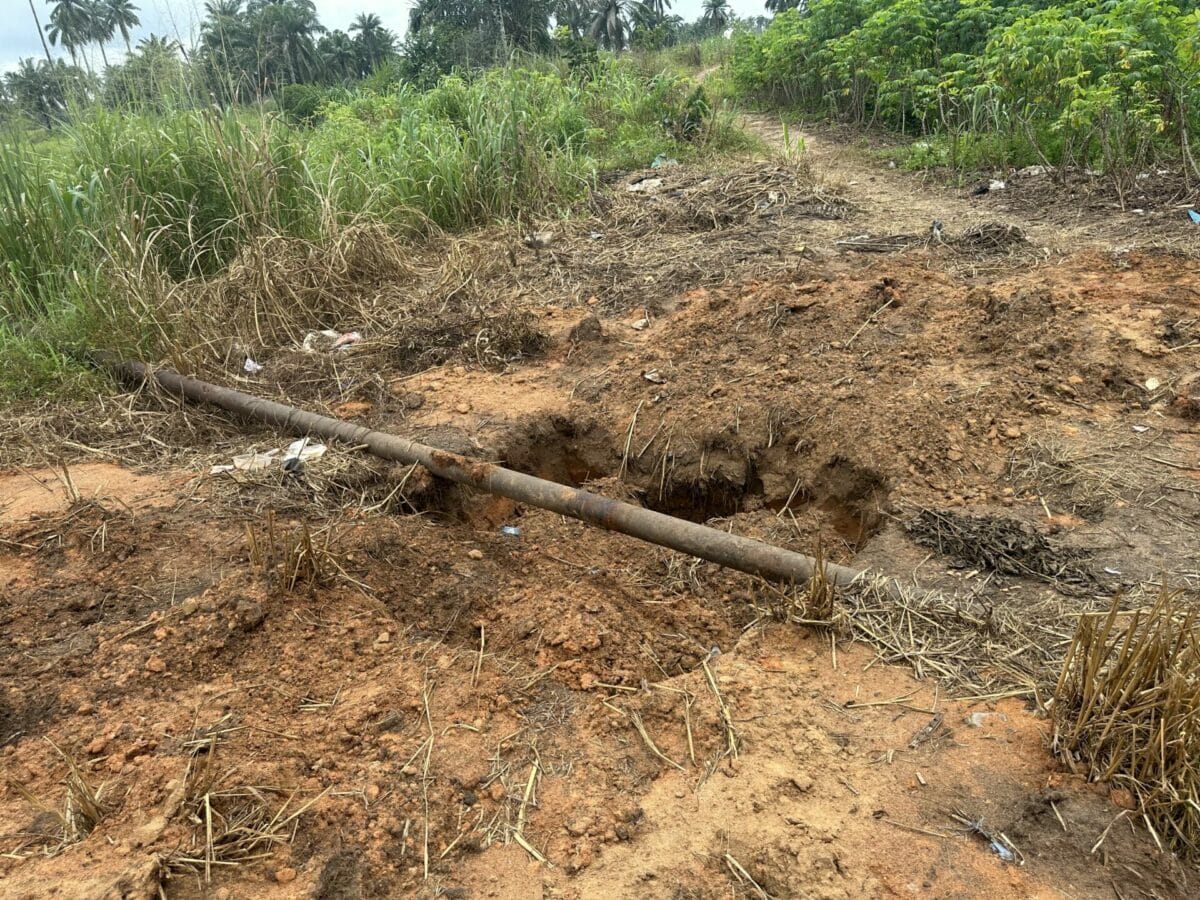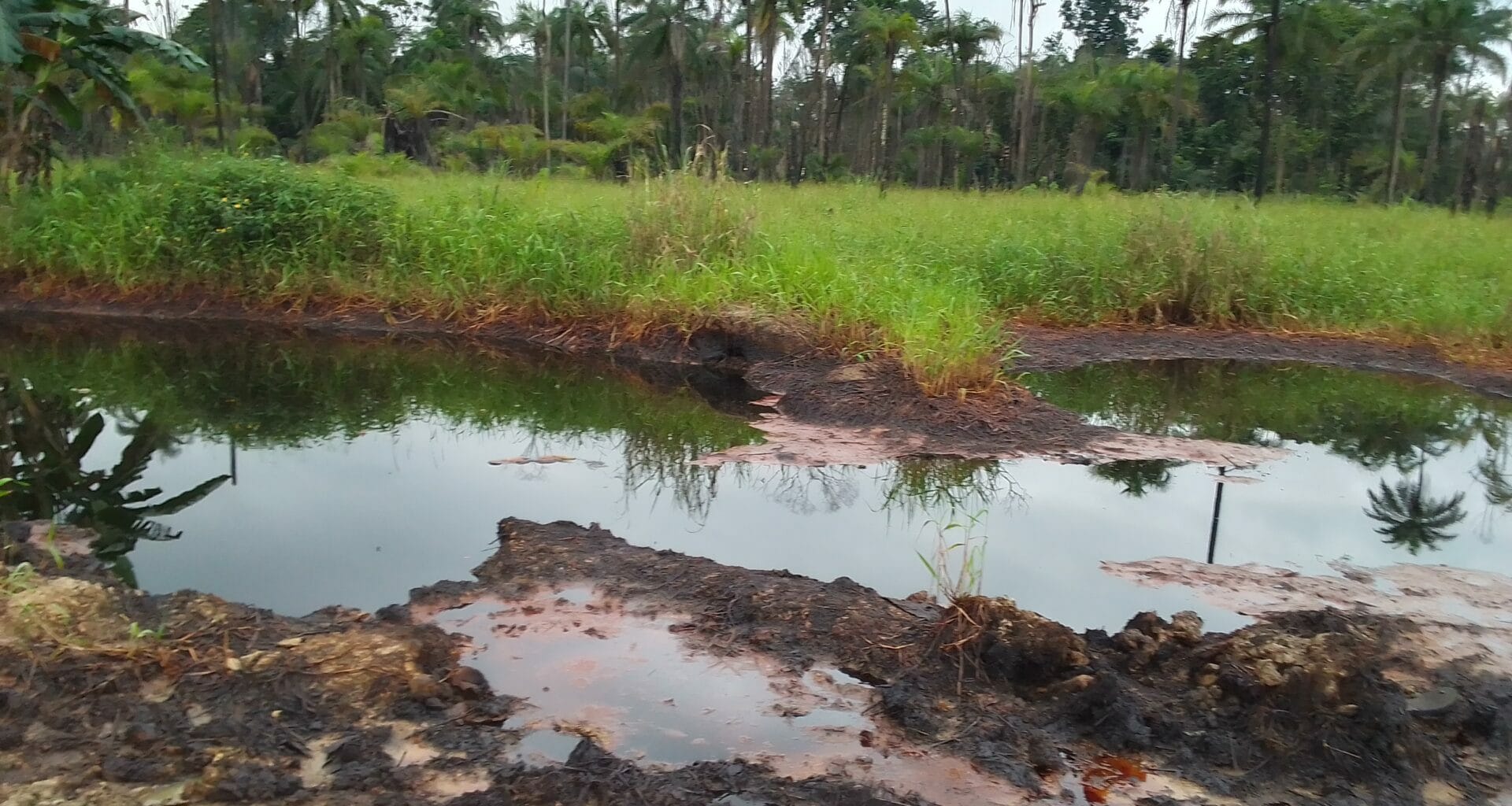An oil spill in Nigeria that polluted rivers and destroyed crops was allegedly caused by a firm owned by an oil multinational with billions invested in the North Sea.
The Ferret visited Nigeria and obtained video of a pipeline belonging to Nigerian Agip Oil Company (NAOC) – a subsidiary of the Italian energy giant, Eni – spilling gas condensate onto farmlands in the Aggah community, Rivers State, southern Nigeria.
Our investigation found that soil and drinking water had been contaminated by crude oil. Villagers claimed crops had been destroyed and said Eni had not compensated people for the environmental damage.
Eni — which works with the University of Strathclyde to help oil workers transfer their skills to renewable energy technologies — said it did not have a record of the Aggah incident. The firm said oil spills were due to “thefts” and “sabotages” and that it pays compensation in “applicable cases”.
Environmental campaigners in Scotland said it was “disgraceful that oil majors are trying to shirk responsibility for these devastating oil spills”, and Strathclyde University was accused of “crass greenwashing”.
Oil spills happen regularly in Nigeria. NAOC reported 52 spills between August 2021 and May 2023, including the spillage of 301 barrels of oil in Rivers State, according to official data from the National Oil Spill Detection and Response Agency, NOSDRA.
Human rights group Amnesty International previously alleged that Eni took weeks to respond to reports of spills and published “misleading information about the cause and severity of spills”. Between 2014 and 2018, Eni reported 820 spills, with 26,286 barrels or (4.1m litres) lost, Amnesty International said.
Our only source of water is the river water, but now that the Nigerian Agip Oil Company has polluted the river, we have no choice but to still drink it.
Lyon Umdukari, community leader
Milan-headquartered Eni — which made £11.4bn in profits last year — is a global energy group with more than 32,000 employees in 62 countries. In June the company struck a deal to acquire North Sea gas producer Neptune Energy in a deal worth nearly £2.1bn deal.
The firm has operated in Nigeria since 1962. In early March, an Eni pipeline spilled crude oil in the villages of Odanwere and Okpotuwari in the Niger Delta region. When The Ferret visited the area on August 11, our reporters filmed muddy farmlands surrounded by crude oil, making access to the area difficult.
At time of writing, there was no report about this incident on the Nigerian Oil Spill Monitor. Nigerian law requires companies to report oil spills within two weeks, and failure to do so results in a daily fine of £515. Failure to clean up a spill results in a fine of £1,030 – an amount activists and other stakeholders have dubbed “pin money” given the extent of environmental damage. The agency did not respond to our request for a comment on why the oil spill was not recorded.
Lyon Umdukari, a community leader, told The Ferret oil had polluted rivers and destroyed crops. The spills have become more frequent since March this year, and no one had visited the community nor paid compensation for oil damage to crops, Umdukari claimed.
“Our only source of water is the river water, but now that the Nigerian Agip Oil Company has polluted the river, we have no choice but to still drink it,” he added.
Umdukari claimed people had suffered skin rashes after bathing in the river – a claim The Ferret can verify — as one of our reporters suffered itchy rashes on her body after contact with the water. Skin contact with crude oil can cause reddening, swelling, and burning.
The villages of Odanwere and Kpotuwari are small and remote and can only be reached by river. A trip takes an hour and 15 minutes by speed boat from the nearest town, Amgiama.

Digbani Camp, 50, claimed she lost all her crops after the oil spill in March. “All cassava and plantains were spoiled, and I took nothing from the farm,” she claimed, although The Ferret could not independently verify this. “I spent nearly £700 trying to plant new crops,” but they did not yield fruits, she added.
The Ferret collected two water samples and one soil sample from various locations in Ondawari. The soil sample was collected from one of the affected farm areas in Okpotuwari village, and a water sample was taken from the oil spill point. Another sample was taken from the Ondewari river.
The samples were taken to the University of Port Harcourt Laboratory to determine the total hydrocarbon content. Crude oil contains hydrocarbons, and a ‘total hydrocarbon test’ detects oil pollution.
The United States Environmental Protection Agency (US EPA) says a total hydrocarbon limit of at 0.5 mg per litre is “quite high”.
The total hydrocarbon content of the Okpotuwari village’s farmland soil was 12,915mg per kg. The river water from Ondewari had a hydrocarbon content of 147mg per litre, while the water sample from Okpotuwari village had a total hydrocarbon content of 14,138mg per litre.
Drinking water containing petroleum hydrocarbons can cause stomach cramps, nausea, vomiting, and diarrhoea.
On July 14, 2023, two soil samples were collected from the Aggah Community in Rivers State and sent to the University of Port Harcourt.
The soil from the farmland had a total hydrocarbon content of 21,675mg per litre, whereas the soil from the river had a total hydrocarbon content of 81,675mg/litre.
Japhet Onuegbu, the laboratory manager at the university, described it as “highly polluted with crude oil.”

The Ferret also spoke to Timinebifia Salvation, 28, a fisher who said she is struggling to survive because “there are no fish in the river.” Salvation added: “Oil has spoiled everywhere… I don’t even have money to buy fish, nor do I have any money to feed my children because everywhere is spoiled.”
LonglifeTruthful Egbe, also from Ondewari community, claimed: “Since the pollution in our farmland, we have not received any kind of support from the company, and this is causing hunger for children.”
The Ondewari community is not the only one claiming to have been affected by NAOC oil spills. On 2 July 2023, a pipeline leaked in Fantuo community in Bayelsa State, destroying rivers and swamps in the area. Residents told local media that spills happen regularly.
The Scottish campaign group, This is Rigged, said: “It’s bizarre that throwing water based paint on a government building is committing ‘vandalism’ but polluting entire rivers and destroying peoples villages, food and livelihoods isn’t?
“We applaud investigative journalism – bringing these stories to light but until we see Nigerian farmland as important as our farmland, until we see people washed away in floods in Libya and Italy as our fellow citizens caught up in a battle with evil fossil fuel companies, we aren’t going to change things.”
Caroline Rance, Friends of the Earth Scotland climate and energy campaigner, said: “It is important that the heinous reality of the oil industry is exposed. Oil bosses don’t care about the people in the Niger Delta, they don’t care about workers in the North Sea and they don’t care about how they are accelerating climate breakdown.
“Our colleagues in Environmental Rights Action/Friends of the Earth Nigeria have been campaigning for justice for the people of Niger Delta for many years. We stand in solidarity with them and the countless communities who are harmed by fossil fuel companies. “

Eni told The Ferret the leaks were due to “oil thefts to feed illegal refineries as well as illegal exports and sabotages”. A spokesperson said “every single event” is investigated in collaboration with local agencies and government bodies and that it endeavours to “remedy” both spills, including when they are operational and due to theft or sabotage.
The firm added: “All subsequent actions are established in agreement with the aforementioned subjects, including remedial actions and compensations.
“The incidence of oil theft and associated illegal oil refining is particularly prevalent in the Southern Ijaw . In Okpotuwari community, along the Ogboinbiri-Tebidaba pipeline, NAOC recorded nine oil spill events in 2022 and 34 in 2023 – all of them were related to third party interferences.”
Eni said its own security measures had led to a decrease in oil spills in the region and it wanted “to eradicate this lingering menace (oil thefts and sabotage) which continues to threaten communities themselves.”
In terms of cleaning up spills, Eni said NAOC works with the Bayelsa State Ministry of Environment and affected communities “in inspecting and verifying the clean-up of affected areas, even though a vast majority of the spills were caused by third-party interference”.
Eni added: “Company pays compensation in applicable cases. Incidentally, all the cases recorded in Okpotuwari and Ondewari for 2022 and 2023 are related to third-party interference. By law, payment of compensation is inapplicable in such cases.”
Responding to allegations from local people and the soil and water samples collected by The Ferret, the spokesperson said: “The claim is too generic and does not relate to any specific spill incident.” The firm denied that spills have been caused by equipment failure.
Eni continued: “We do not have any record of an oil spill event in Aggah community on the indicated timeframe, received notice of spill in Aggah.
“On the same day in a neighbouring area, a spill and NAOC immediately intervened. A joint investigation visit was performed, involving the regulatory agencies and the cause of the incident was established to be a third-party interference (hacksaw cut).”
Eni announced plans to sell NAOC to a firm called Oando on 3 September – subject to regulatory authorisation – and focus on its offshore work in Nigeria.
The University of Strathclyde has been asked to comment.
Additional reporting by Kevin Woke and Faith Imbu.
Editing by Billy Briggs.
Featured photo, taken on 11 August 2023, is of farm roads polluted by oil leaks from an Eni pipeline in Okputwari community in Southern Ijaw, Bayelsa State. Photo credit: Faith Imbu.
This investigation is supported by JournalismFund Europe.
This Ferret story was also published with the Herald. Our partnerships with other media help us reach new audiences and become more sustainable as a media co-op. Join us to read all our stories and tell us what we should investigate next.














